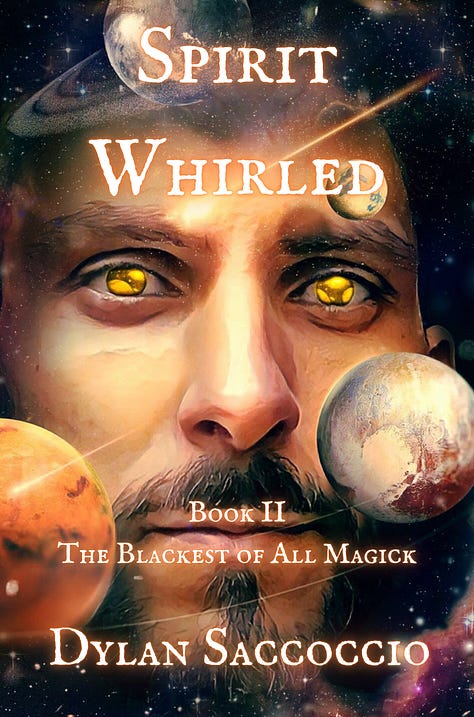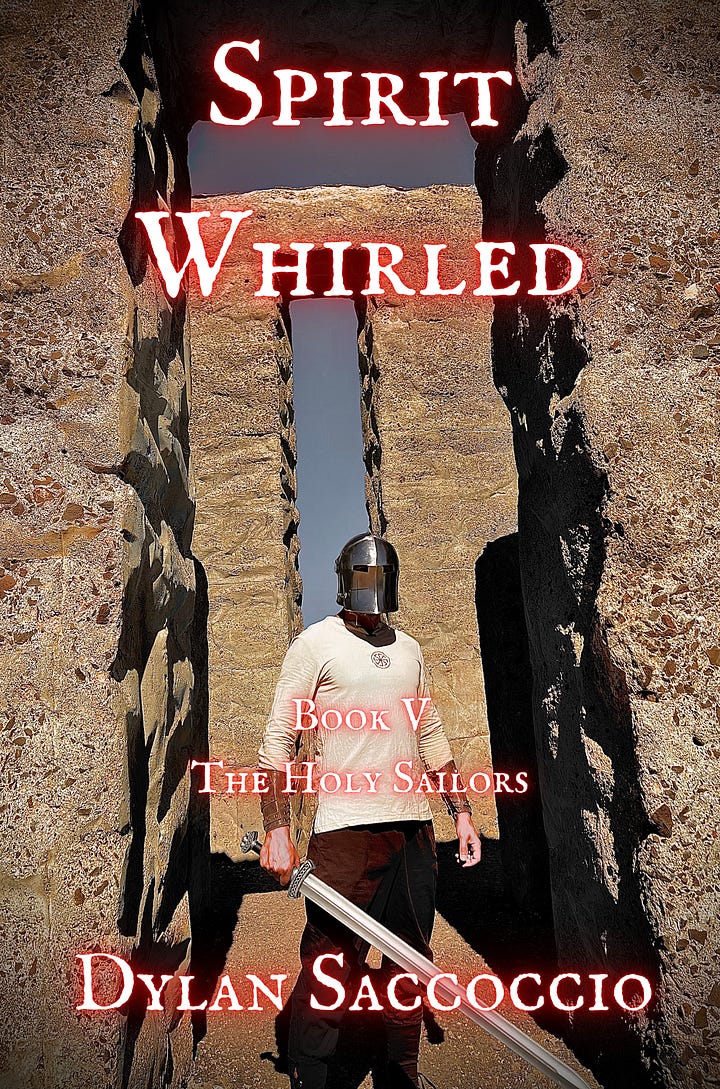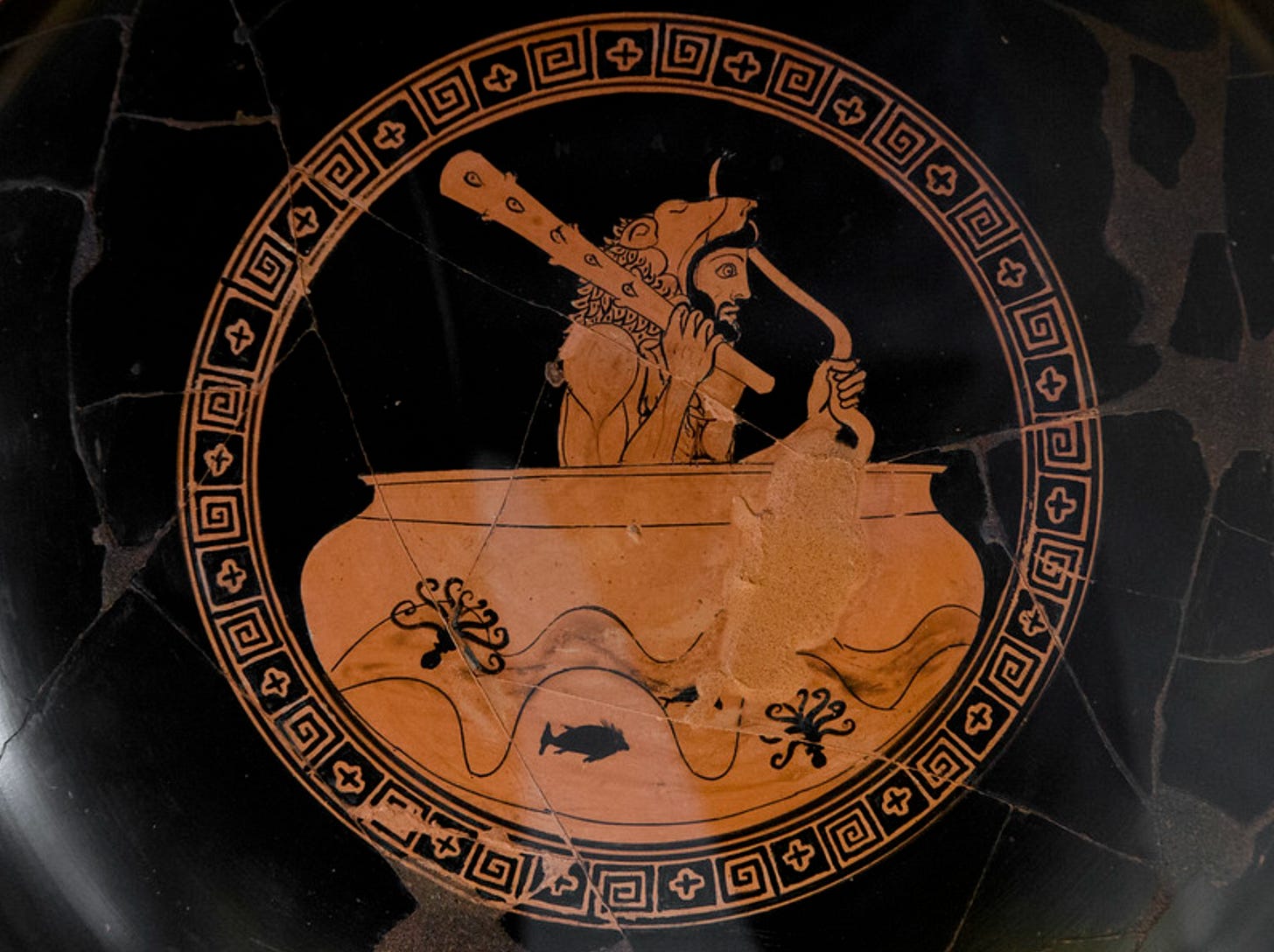There is a saying, better the devil you know than the devil you don’t. But is choosing the lesser of evils the only option? Is it better to side with a familiar devil than an unfamiliar one? If one is unfamiliar, then how can you be sure he is a devil?
Reverend Rober Taylor wrote (Astr. Lect. pp. 101, 102.), “If any one fallible man hath a right to represent any portion of God’s word as more sacred and solemn than it really is, any other man may with as good a right represent it as less so. And thus it will turn out in a thousand instances, that it is not the word of God, that our good Christians are concerned to propagate, but their own word all the while,—not that we should submit our understanding to the revealed mind and will of God, but that we should submit to their minds; that we should understand just as they understand, that we should think as they think, and not presume to exercise the faculty of criticism, inquiry, or curiosity on our own account.”
JOB—איוב
None of the Hebrew in this collection of lectures is correct, which leads me to suspect they are copies of his written notes, published by people who weren’t proficient in Hebrew and did their best to make sense of the Hebrew letters, so many of which look similar depending on fonts.
Taylor wrote (Ib. p. 112.), “And the setters up of a tale like this talk of blasphemy! These men call me a blasphemer! These men cast me into a dungeon, imprisoned me in the gaols of felony and crime, and bound me in penalties beyond my utmost means of payment, that I should not blaspheme: These men who have represented the character of God as that of so great a monster of iniquity and cruelty, so foul a fiend of mischief and malignity, ‘That at the bare imagining, the cheek of man doth blanch to chalky whiteness, and the seated heart knocks at the ribs against the use of nature.’
“These men talk of blasphemy; these men who, if such a crime could possibly exist, are themselves the most wicked blasphemers, and the most impious of the whole human race: these men would be guardians of the morals of the people.”
The name Job as seen in the Targums, Aiub or Aiuv, signifies a serpent in its aub form, sometimes transliterated ob, but also a ghost or necromancer (sorcerer; black magician).
The very name of Apollo is the name of Job according to Jacob Bryant’s work. He wrote, “The Greeks called Apollo himself Python, which is the same as Opis, Oupis, and Oub. The woman at Endor, who had a similar spirit, is called אוב, Oub, or Ob; and it is interpreted Pythonissa.”
אב (ab) means father. It is the same word without the vav (ו). Therefore, we see a relationship between aub and ab, which has the spirit of Father Necromancer, or Head Necromancer laid up in it. One who can be a medium to the dead is a sort of psychopomp or shepherd of the newly departed, such as the eudaimones, is he not?
In the following lexicon, it is admitted, “The root-meaning of aub can only be remotely conjectured, and the distinction between aub and idoni is unknown.”
Moses, an initiate, forbids the Israelites, that is those who’ve not yet attained the degree of Hebrew (obri; those who’ve passed over the Hebraic degrees of masonry; the men from beyond), from ever inquiring of those dæmons, Ob and Ideone, that is, the sages and the gnostics. It looks like the hierarchical compartmentalization of the priesthood.
Ideone, or Idoni (ידעני), has a Greek equivalent, which is γνώστης (gnostes). This is gnostic. Idoni is phonetically similar to Aduni, or Adonai, which signifies Lord, but is taken from the Phoenician Adonis.
Taylor wrote (Astr. Lect. pp. 82, 83.), “This book of Job, in the English version of the Polyglot Bible, printed page by page opposite the Latin of the Vulgate of Pope Sextus V. and Pope Clement VIII., presents, in its margin, the words, ‘Moses is thought to have written this Book of Job, whilst among the Midianites,’ BC 1520.
“If it were so, the book was written before the Exodus of the Children of Israel out of Egypt, before the call of Moses to be their deliverer, before the five books of the Pentateuch; and, consequently, in Christian admission, it stands admitted to be the oldest of all books which either the Jewish or the Christian world have received as of divine inspiration, and therefore, the oldest book in the world.”
Taylor alluded to something I’ve touched upon as well, that I did not learn from him, which is, in his words, “The great secret of the properties of the magnetic needle, the mariner’s compass, which, we are told, was first discovered by the Venetian Marco Paulo, in the year 1260, only 570 years ago, had been known to the priests for ages before that time, had subserved their purposes, extended their power, and directed their voyages, while it was entirely concealed from the knowledge of the vulgar, under the veil of precisely such allegories as those of our sacred Scriptures are found to be.
“The priests of Jupiter Ammon carried the magnet with them, in a compass box, as the Ark of the Covenant of their God, which it was death for the unsanctified to look into.
“It was enough that the brute uncurious people could be put off with a miracle. They were told that Hercules had sailed across the ocean in a vase, directed by the arrow of Apollo. It was gospel, and they suspected no other meaning than the grossest and most literal one, Hercules was God, and nothing was impossible to God.
“The poet Homer, 900 years before the Christian era, and 2160 years before the pretended discovery of Marco Paulo, had given a yet plainer hint of the possession of the great secret by the priests, for perhaps as many thousand years before his time. The priests of Phæacia had ships that were inspired: and in the 8th Odyssey of Homer they are thus described:
‘No pilot’s aid the Phœacian vessels need,
Themselves instinct with life securely speed,
Endued with wondrous skill, untaught they share
The purpose and the will of them they bear.
To fertile realms and distant climates go,
And where each realm and city lies they know,
Swiftly they fly, and thro’ the pathless sea,
Tho’ wrapt in clouds and darkness find their way.’
“In like manner the telescope, ascribed as a modern invention, to Galileo Galilæi, about the year of our era 1640, had been known to the colleges of the priests for countless ages before that time; and was concealed from the curiosity of the credulous multitude, under the allegorical miracle, that Pythagoras could read inscriptions on the Moon.”
I’ve demonstrated the association between the navigators and the priests in the Spirit Whirled series, as well as my work on this platform. Revisit this article:
Fresh Batch #33: Is the Cross of Lorraine a Symbol For Tools Used by Ancient Astronomers, Priests, Masons, Navigators, Merchants, Alchemists, and Healers?
The Spirit Whirled series demonstrates the four significant guilds that must be merged, or intermingled in order for empire to flourish; those of the priests, of the masons, of the navigators, and of the merchants (of which I would also include barons in both the sense of the Lords, estate owners, but also a titan of business or industry).
For those looking to piece together the historical context of all this, and who the primary culture responsible for this was, read The Real Universal Empire.







Become a member to access the full podcast and the rest of the show notes, which are articles unto themselves.
Listen to this episode with a 7-day free trial
Subscribe to Ancient History, Mythology, & Epic Fantasy to listen to this post and get 7 days of free access to the full post archives.





















